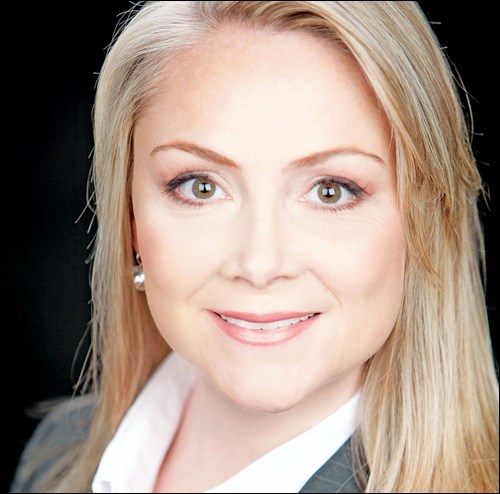A client recently asked me about a private investment deal she’d heard of that pays over 12% a month. A friend had told her it was some sort of syndicated offshore real estate timeshare investment with great cash flow, and was open only to what he called “accredited investors” for a limited time. Her friend said he was already receiving monthly cheques. This sounds like an exciting deal, and quite lucrative too. But this type of “investment” has the word “risk” written all over it. It also has the word “scam” written all over it, for those who have the wisdom to see it.
First and foremost, a promised sustainable yield of 12% a month is virtually impossible. That’s a 144% yield in a year. If it were possible, investors in such a scheme would soon have all the money in the world.
Note that a gain of 144% on an investment is not unheard of. That’s especially true in high-risk IPOs and venture-capital start-ups, especially in the world of high tech. Facebook Inc. (NASDAQ: FB), for example, gained 174% between the end of December 2012 and the year-end 2014. But remember that is was a capital gain on the price of the stock over two years, not a monthly dividend or distribution yield of the kind promised in so-called “offshore” real estate deals.
A second red flag here is that the investment involves some type of offshore holdings. This may sound appealing on the surface, evoking images of swaying palms and tax havens, but the darker underside is that it’s very difficult to get reliable information about the legal ownership and financial viability of assets held offshore. For forensic accountants and commercial crime law enforcement, “offshore” is simply a euphemism for “dodgy.”
A third red flag warning in this arrangement is the fact that the investment is available only to “accredited” investors, with the added pressure of being available “for a limited time.” Normally, a legitimate investment offered to “accredited” investors means that no prospectus legally setting out the nature and terms of the deal, and the individuals behind the deal, is required. Accredited investors have a very high net worth already and are assumed to be financially sophisticated, and so will insist on seeing exhaustive financial statements, legal information pertaining to the investment, liquidity and mechanisms for selling the investment, usually far beyond what a prospectus would supply in any case.
However, financial-scheme scammers rarely target highly sophisticated investors. They often use the “accredited-investor” status ploy to avoid having to provide much financial detail to their marks about their “investments.” They count on the marks’ vanity, financial naiveté, and greed
Finally, the fact that someone has said they are already receiving a 12% return per month is a very strong indication of a classic Ponzi scheme at work. New investors are paid off – for a short time – with some of the proceeds gained from previous marks (whose investments have mysteriously run into “temporary” cash flow difficulty). These newer investors, who are still receiving those incredibly high yields, then enthusiastically recruit more new marks to keep the Ponzi scheme rolling for as long as possible. Sometimes it can be a very long time indeed – notorious swindler Bernie Madoff’s Ponzi scheme went on for years and defrauded investors of billions of dollars.
For this investment offer, and others like it, my advice is simply to avoid it altogether. It’s easier to say “no” now than to try to get your money back later. The sad history of financial fraud proves that while scammers may sometimes end up in jail, most victims never recover their money.
March was fraud prevention month in Canada, and there are many useful online resources to help you identify and avoid the many types of fraud being perpetrated today. The government’s Canadian Anti-Fraud Centre has a list of 26 (!) different categories of active scams, and is well worth consulting if you suspect you might be a target of a potential fraud.
The Centre also provides a useful checklist to help you avoid becoming a victim of a fraud or scam in the first place:
* Get independent advice. If an offer involves money, information, or time from you, get independent advice from a qualified professional, such as a lawyer, accountant, or financial planner.
* No guarantees. There are no guaranteed get-rich-quick schemes. If it sounds too good to be true, it is.
* Never submit to sales pressure. Get independent advice. A legitimate investment will still be available tomorrow or next week or next month.
* Do your due diligence. Never sign anything, hand over money, or reveal personal information (bank accounts, credit cards, brokerage accounts), or sign anything until you’ve researched the offer and checked the credentials of whoever it is making the offer.
* Ignore testimonials. Look at the company’s books directly, examine its historical financial statements, and check out the physical operations in person. Be deeply suspicious if the person selling you an investment attempts to discourage you from bringing in an independent advisor.
* Don’t get click happy. Never click through links to websites provided in unsolicited or spam email. If you’re interested in a product, service, or investment, navigate to the site page directly through your browser.
To learn more about avoiding investment frauds check the Ontario Securities Commission website. Many people who have been scammed are too embarrassed to admit it. But this only leaves the criminal free to continue perpetrating his frauds on other people. If you believe you’ve been scammed, report it to the Canadian Anti-Fraud Centre, a provincial securities commission such as the OSC, the Government of Canada Competition Bureau, or your local police fraud squad.
— Courtesy Fundata Canada Inc. © 2015. Robyn Thompson, CFP, CIM, FCSI, is president of Castlemark Wealth Management. This article is not intended as personalized advice.


.jpg;w=120;h=80;mode=crop)

